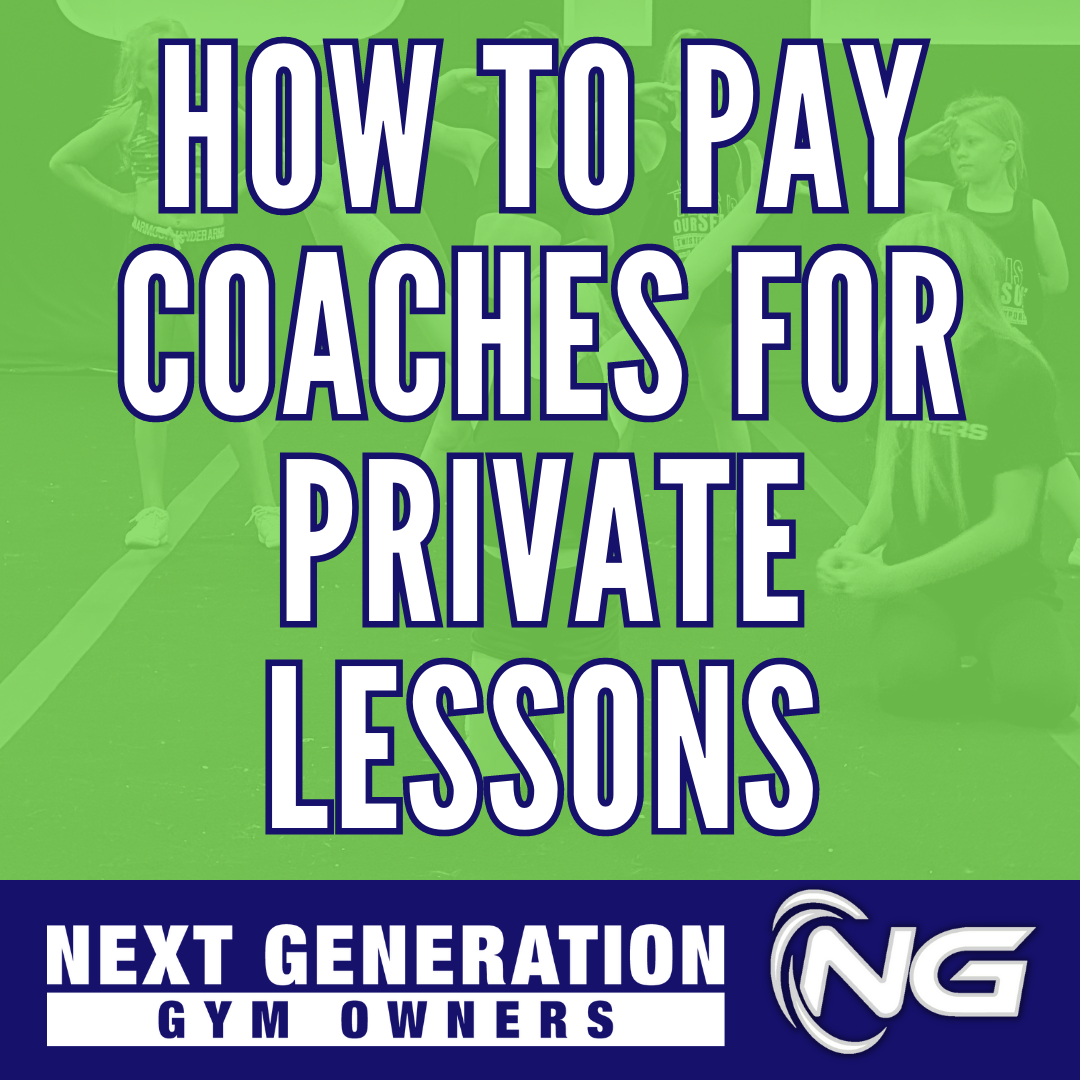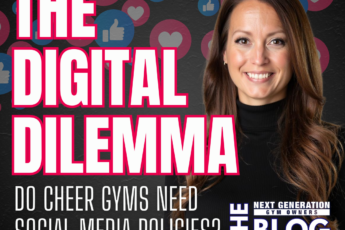A hot topic in cheerleading is “private lessons”. How and how much should we be paying coaches to teach private lessons. I’ve said many times before that I believe our industry puts too much emphasis on being a unicorn. We often want to believe that the cheerleading industry is unlike any other industry, and because of that, we have to modify common business practices to achieve success.
That’s simply not the case though. Our gym was the first of many businesses we owned. So, for the first couple years, I bought into the unicorn theories.
❌ I believed people when they posted that customers who discontinued the service should go to collections.
❌ I believed people when they said you couldn’t make money on All Star, and so for many years we focused on all the other programs in our gym.
❌ I believed people who said parents shouldn’t question your decisions, and if they did, they just likely weren’t the right fit for your gym (more on that in another blog!)
❌ I also believed people who said the best way to pay coaches for competitions was a flat-rate pay and the best way to pay them for private lessons was a percentage of the fee.
Why wouldn’t I believe those things, right? After all, it was posted in a reputable group of gym owners, and if it weren’t the best business practices, someone would speak up, right? WRONG.
It wasn’t until we started looking at other industries, reading business books, listening to podcasts and studying business that I realized, “Cheerleading is not a unicorn.” Many industries think they’re unique in their challenges and procedures, but most are a slightly modified version of what other successful owners are doing.
When we opened a restaurant, it REALLY opened my eyes.
Why would I pay a coach more to teach just one athlete when I was paying a cashier the same whether she rung up one order or 10?
Think about other industries. A store manager makes more money because he or she is in a position of authority and leadership. He doesn’t make more just because he’s working with a more special customer? He also doesn’t make more for the next hour just because he’s working a special project.
All projects are important. All athletes are important. The time your coaches spend working with one athlete is no more or less important than the time they spend working with multiple athletes during a class.
So, why do we feel like we need to pay coaches an hourly rate to coach classes and teams, but we pay them a percentage of the private lesson?
I have had a few people tell me over the years that’s how they show their coaches appreciation and incentivize them for their time. But why would we incentivize them more for a private lesson than for a class?
Are private lessons outside of their normal work schedule? I get that…but again, it’s not much different than someone picking up another shift and a few more hours in retail or restaurants.
If you’re looking to incentivize coaches, train them well. Then, give them a raise.
This will help keep your budget in check, give you the authority to change the cost of private lessons (because you’re the owner and should have control over all pricing in your business!) without asking others.
My coaches clock in and out for private lessons just like they do for classes. When they do a great job, they get evaluated, and they get raises. They are incentivized because I pay them well.
When they want more hours, we market private lesson availability. When I get a 30-minute gap in classes, I market private lesson availability. When I have coaches with great availability over winter break and summer, I can put my private lessons on sale or even bundle them to sell more. My coaches still get their hourly rate.
Bottom line? Don’t overcomplicate things that should be easy. Tomorrow I’ll talk about a few of the legalities regarding private lessons and we’ll dive into competition pay as well!








